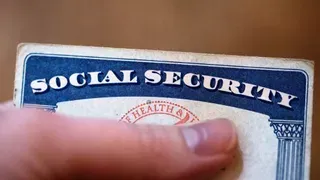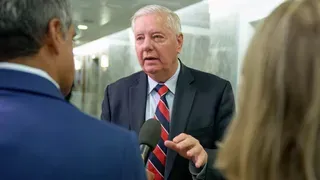August 28, 2013
Obama Embodies King's Dream and His Struggle
Bobby McGuire READ TIME: 2 MIN.
WASHINGTON -- President Barack Obama won't need to mention race - a subject he doesn't talk a lot about in public - when he stands at the Lincoln Memorial on the anniversary of the March on Washington.
His presence at the commemorative ceremony Wednesday will embody the fulfilled dreams of the hundreds of thousands who rallied there 50 years ago for racial equality - and will personify the continued struggle for that elusive goal.
When he became president, Obama blasted through a heavy barrier that many before him had only pushed against. But his presidency has been marred by racist backlash and his administration has found itself refighting battles already thought won, such as ensuring equal access to the polls.
Obama is expected to speak just after an organized ringing of bells by churches and others at 3 p.m. EDT, the time when the Rev. Martin Luther King Jr. delivered his spellbinding "I Have a Dream" speech. Obama will be joined by former Presidents Jimmy Carter and Bill Clinton at the memorial's steps. Other luminaries include Lynda Bird Johnson Robb, daughter of President Lyndon Johnson, who signed the 1964 Civil Rights Act and the 1965 Voting Rights Act.
A march, led by a replica of a transit bus that civil rights leader Rosa Parks rode when she refused to give up her seat to a white man in 1955, and an interfaith service also were planned for Wednesday morning. A march held Saturday drew tens of thousands to the Lincoln Memorial.
Obama considers the 1963 march a "seminal event" and part of his generation's "formative memory." A half-century after the march, he said, is a good time to reflect on how far the country has come and how far it still has to go.
In an interview Tuesday on Tom Joyner's radio show, Obama said he imagines that King "would be amazed in many ways about the progress that we've made." He listed advances such as equal rights before the law, an accessible judicial system, thousands of African-American elected officials, African-American CEOs and the doors that the civil rights movement opened for Latinos, women and gays.
"I think he would say it was a glorious thing," he said.
But Obama noted that King's speech was also about jobs and justice.
"When it comes to the economy, when it comes to inequality, when it comes to wealth, when it comes to the challenges that inner cities experience, he would say that we have not made as much progress as the civil and social progress that we've made, and that it's not enough just to have a black president, it's not enough just to have a black syndicated radio show host," Obama said.
---
Associated Press writer Darlene Superville contributed to this report.







